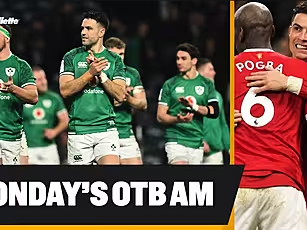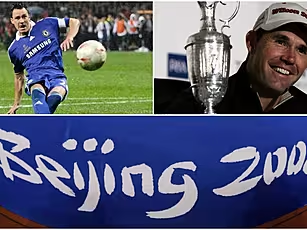The full scale of the debts of the FAI became clear at a press conference earlier on Friday.
The full debt figure sits at over €55,067,472. The FAI had previously stated in their 2017 accounts they had made a profit of €2.8 million. However it was revealed today that figure was in fact a loss of €2.9 million.
The figure for ex-CEO John Delaney's settlement package from the FAI was also announced as being €462,000.
Dr Robbie Butler of University College Cork's Department of Economics joined us on Off The Ball to break-down the numbers.
"The overall net liability figure is worrying for an Association that turns over about about €45 million a year. To have a net liability of €55 million is something that should be of concern," he said of the top-line figure.
"From the point of view of the viability of the Football Association, I think we have to be careful in terms of what Deloitte are recommending.
"Of course, they say this is a company that mightn't be a going concern. But I think this is a little bit different to a normal private companies that we might consider or look at.
Public Element
"Because football in Ireland, it's administered by the Football Association. Whilst it is a private entity as such, it does have a public element. It receives money from the tax-payer and it also has a public good. And the public good is something that football fans and supporters are drawn to. So despite the fact that the Association that administers the game is in financial difficulty, I don't think football in this country is. And simply because it's owned by the people that play it and volunteer at grassroots level."
The organisation itself however faces an uncertain future however.
"I think the worrying thing for the Association is an adjustment is going to be required," said Butler.
"If you look at the cost side, by far the biggest is staffing. I think that's something that's worrying and concerning, particularly before Christmas. If this company is to become viable and sustainable, it's probably going to mean it's not pay cuts; it's redundancies."
On the specific numbers, he explained that the €55 million is "largely" bank debt.
"The bank debt would have been the legacy of the Aviva," Butler continued.
Mortgage
"The worrying thing now is that the mortgage on the Aviva has been extended until 2034. So that's a long way from where we thought we would've been.
"The worrying thing is that the mortgage was supposed to be paid by 2020 and now 14 years have been added to the mortgage. So what does that mean in terms of interest and the actual sustainability of the stadium in the long run? Because it's more than just the mortgage that we have to pay back. The stadium gets older and it requires maintenance. Particularly with interest on that, that's money that could be used for something else.
"There's an opportunity cost on it. So we're going to have 14 years of payments towards the stadium that could've been spent somewhere else."
With that in mind, Butler also added that the upcoming Euro 2020 playoff tie is of even more "critical importance now more so than from a footballing perspective that we actually qualify for Euro 2020 because of the rewards associated with that."
You can watch the full discussion with Robbie Butler above via our YouTube channel.







